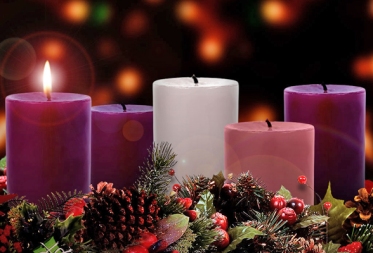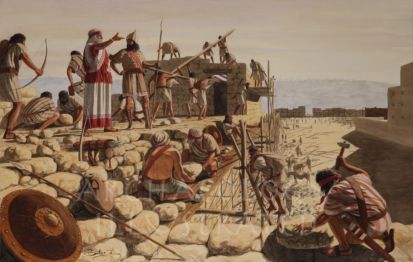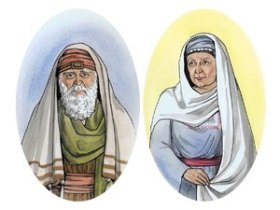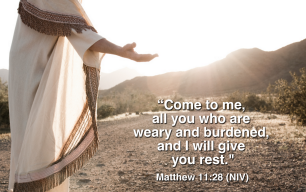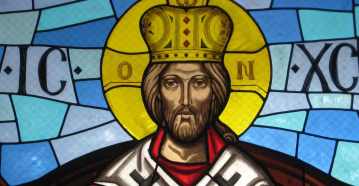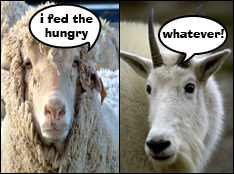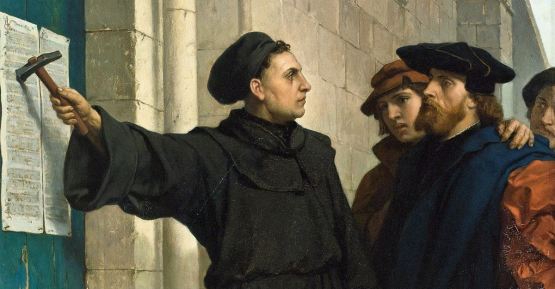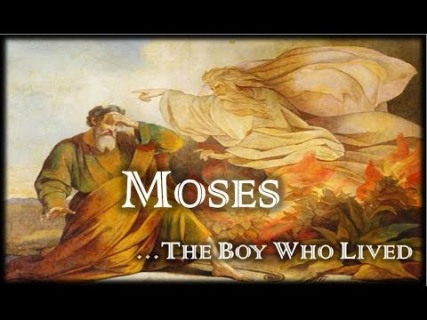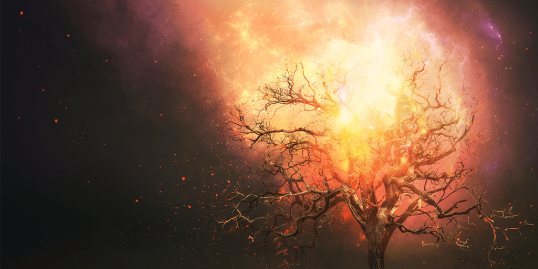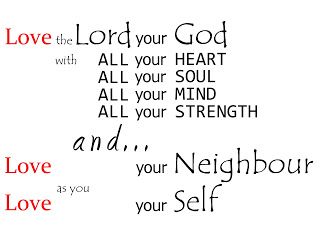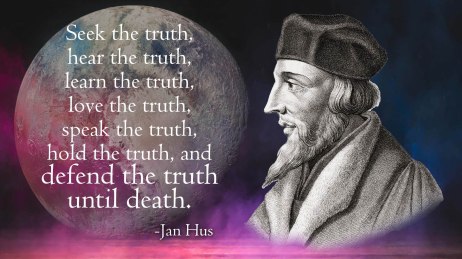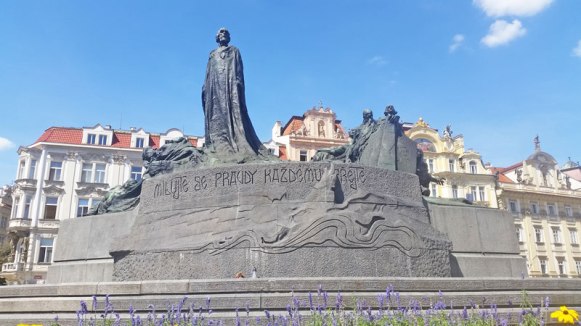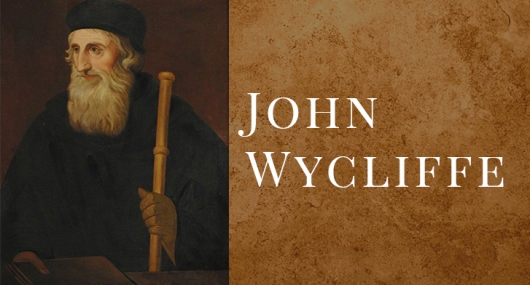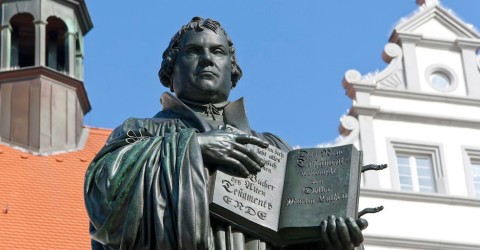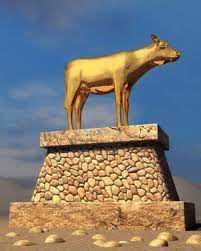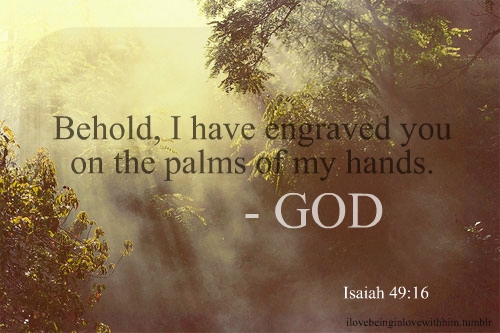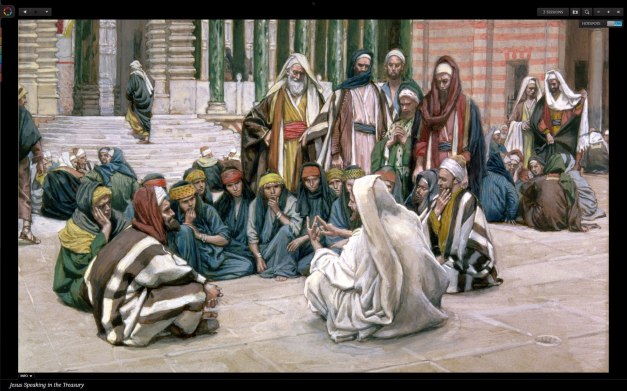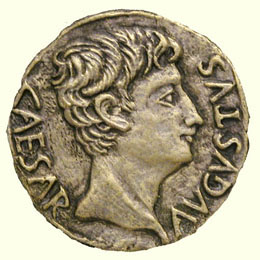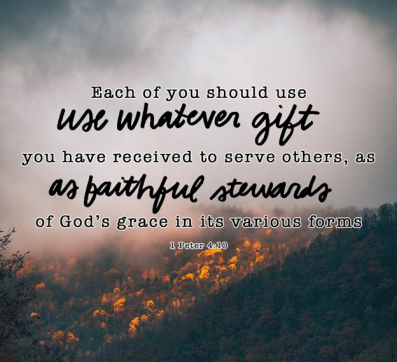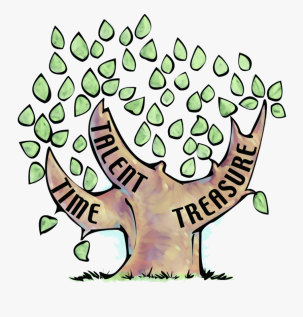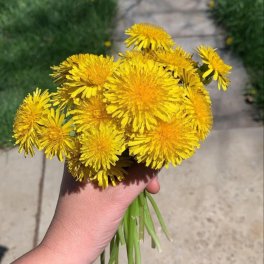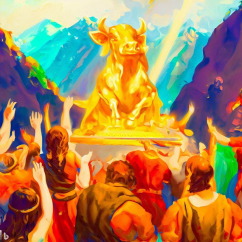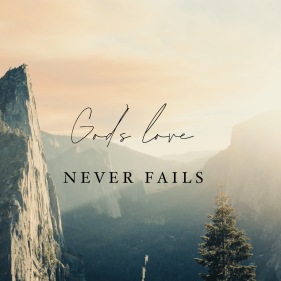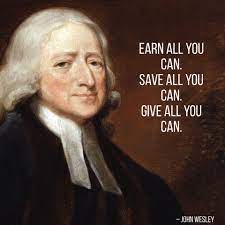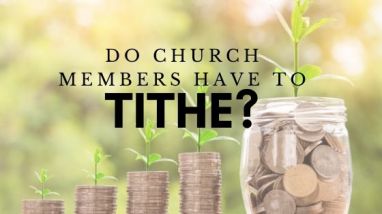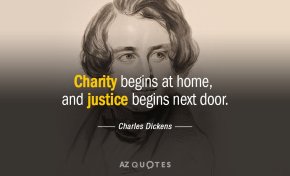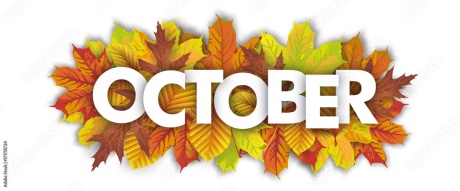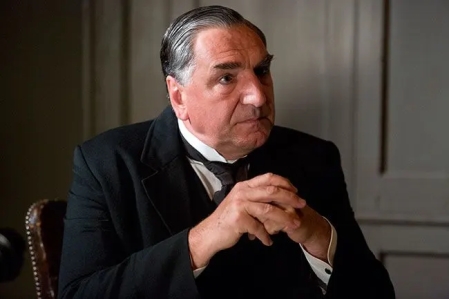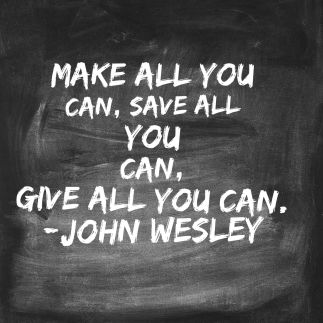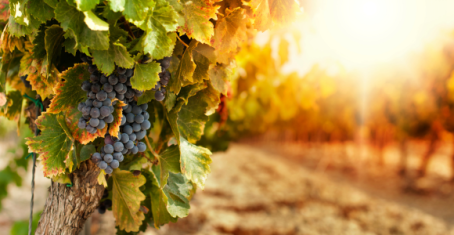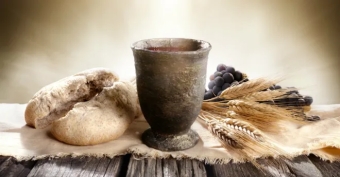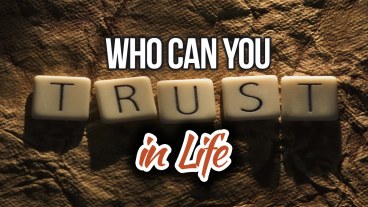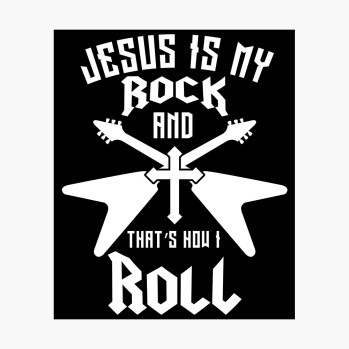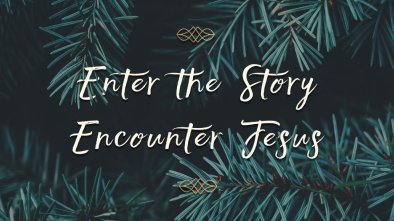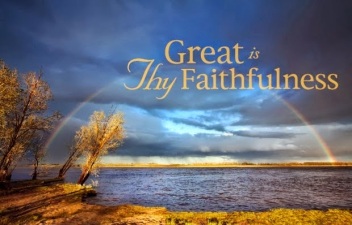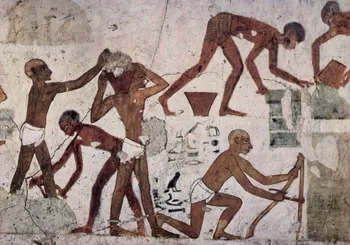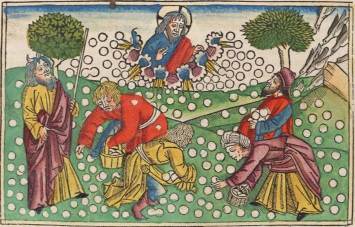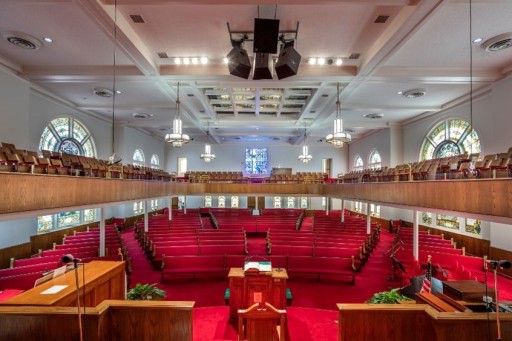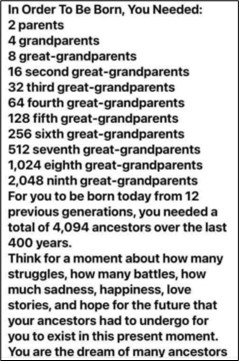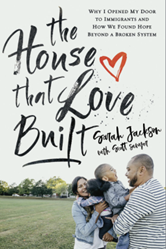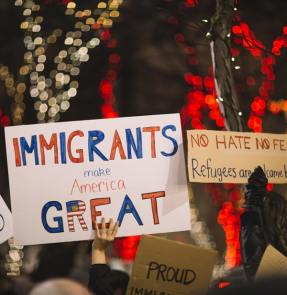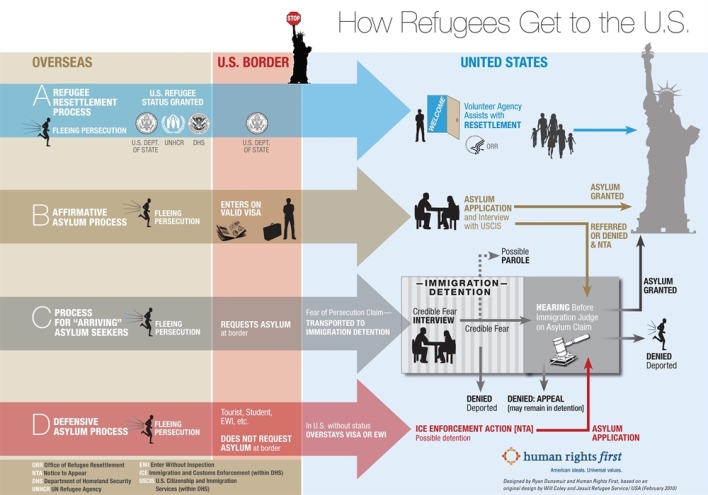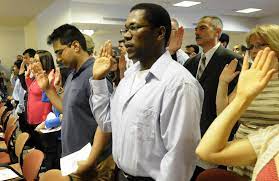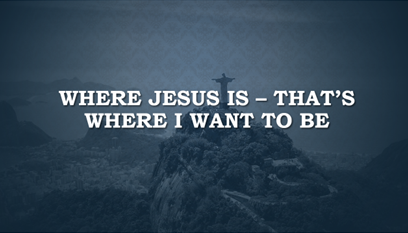46 And Mary said, “My soul magnifies the Lord, 47 and my spirit rejoices in God my Savior, 48 for he has looked with favor on the lowliness of his servant. Surely, from now on all generations will call me blessed; 49 for the Mighty One has done great things for me, and holy is his name. 50 His mercy is for those who fear him from generation to generation. 51 He has shown strength with his arm; he has scattered the proud in the thoughts of their hearts. 52 He has brought down the powerful from their thrones, and lifted up the lowly; 53 he has filled the hungry with good things, and sent the rich away empty. 54 He has helped his servant Israel, in remembrance of his mercy, 55 according to the promise he made to our ancestors, to Abraham and to his descendants forever.” – Luke 1:46-55
~~~~~~~~~~~~~
67 Then his father Zechariah was filled with the Holy Spirit and spoke this prophecy: 68 “Blessed be the Lord God of Israel, for he has looked favorably on his people and redeemed them. 69 He has raised up a mighty savior for us in the house of his servant David, 70 as he spoke through the mouth of his holy prophets from of old, 71 that we would be saved from our enemies and from the hand of all who hate us. 72 Thus he has shown the mercy promised to our ancestors, and has remembered his holy covenant, 73 the oath that he swore to our ancestor Abraham, to grant us 74 that we, being rescued from the hands of our enemies, might serve him without fear, 75 in holiness and righteousness before him all our days. 76 And you, child, will be called the prophet of the Most High; for you will go before the Lord to prepare his ways, 77 to give knowledge of salvation to his people by the forgiveness of their sins. 78 By the tender mercy of our God, the dawn from on high will break upon us, 79 to give light to those who sit in darkness and in the shadow of death, to guide our feet into the way of peace.” 80 The child grew and became strong in spirit, and he was in the wilderness until the day he appeared publicly to Israel. – Luke 1:67-80
~~~~~~~~~~~~~
Now when the king was settled in his house, and the LORD had given him rest from all his enemies around him, 2 the king said to the prophet Nathan, “See now, I am living in a house of cedar, but the ark of God stays in a tent.” 3 Nathan said to the king, “Go, do all that you have in mind; for the LORD is with you.” 4 But that same night the word of the LORD came to Nathan: 5 Go and tell my servant David: Thus says the LORD: Are you the one to build me a house to live in? […] 8 Now therefore thus you shall say to my servant David: Thus says the LORD of hosts: I took you from the pasture, from following the sheep to be prince over my people Israel; 9 and I have been with you wherever you went, and have cut off all your enemies from before you; and I will make for you a great name, like the name of the great ones of the earth. 10 And I will appoint a place for my people Israel and will plant them, so that they may live in their own place, and be disturbed no more; and evildoers shall afflict them no more, as formerly, 11 from the time that I appointed judges over my people Israel; and I will give you rest from all your enemies. Moreover the LORD declares to you that the LORD will make you a house. […] 2 Samuel 7:16 16 Your house and your kingdom shall be made sure forever before me; your throne shall be established forever. – 2 Samuel 7:1-11
~~~~~~~~~~~~~
Today is an unusual day. It’s not often we celebrate the fourth week of Advent AND Christmas Eve on the same day! For this service we will be focusing on the fourth week of Advent, and we will celebrate Christmas Eve later this evening.

So on the fourth week of Advent we light the candle of Love; and in the fourth week of our Advent series How Does a Weary World Rejoice? the fourth lesson is entitled “We Sing Stories of Hope”. So this morning we have Love, and Rejoicing (or Joy), and Hope, and might as well toss Peace as well: bottom line, Advent is now complete! But the baby Jesus has not quite arrived yet… so I’d like to take a few moments to listen to what Mary and Zechariah had to say about their miracle babies.
Our scripture readings today are actually songs, or at the very least poems, and the words have been set to music many times over the centuries. And they’re two parts of the same story.
I’ll start with the song of Zechariah. Zechariah spoke (or sang) these words over his baby boy, John, right after John was born. Zechariah started out by praising God for showing kindness and mercy to Israel by making good on God’s promise to send a redeemer. John will not be the redeemer; John will be the one who will prepare the way for him; but as Zechariah sings, he looks forward to the coming of the savior, who will come from “the house of his servant David”.
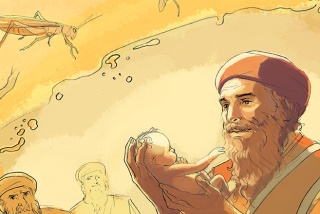
This reference to the ‘house of David’ would have had a lot of meaning for the people listening that day in Israel. Especially during the time of the Roman occupation, it would have been a clear reference to the messiah who God had promised through the Old Testament prophets. Many people believed the messiah would be a military savior – someone who liberate Israel from the Romans – although Jesus later made it very clear that his kingdom “is not of this world,” and that his mission on earth was bigger and more important than the Roman Empire.
At the same time, this messiah – according to the prophets – would save Israel from its enemies and from anyone who hated them. So how could this not mean liberation from Rome? That story will unfold, and questions will be answered, in the decades ahead. But as we keep listening to Zechariah’s song, we hear some of these promises beginning to coming true…
The messiah will show mercy to God’s people. The messiah will remember the holy covenant between Abraham and God, and he will renew it. God’s promise to Abraham was that he would have many, many descendants (at the time Abraham had no children); and that Abraham would have a land of his own; and that all the nations of the earth would be blessed through him. All the nations – including us! Jesus will be the messiah who not only fulfills God’s promises to Israel but also fulfills God’s promises to us Gentiles as well.
In addition, God made a promise to King David – which Zechariah also mentions in his song – that there would always be one of David’s descendants on the throne of Israel. Looking at Old Testament history, it appears as though David’s royal line died out; the nation fell to invaders around 400 years after David died, and there were no more kings of Israel after that.
But we see in the book of Matthew that Jesus is a descendant of David, both through his father Joseph and through Mary (and through the Holy Spirit!) So Jesus is the promised king, the descendant of David, whose kingdom will never end. Zechariah says: “…as he spoke through his holy prophets of old.” Prophecy is being fulfilled.
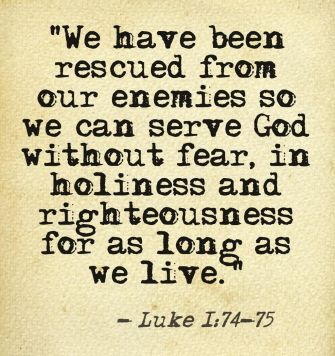
Zechariah goes on to say that through this savior we will all be able to serve God without fear: without fear of falling short, without fear of not being good enough, without fear of the things we’ve done wrong in the past, without fear of what other people might say about us, without fear of what other people might think of our backgrounds, without fear in a world that’s changing faster than we can keep up with, without fear of having too much month left at the end of the money.
There are so many ways that people can be afraid; but when we become God’s people we serve God without fear of any kind, because through this descendant of David, this Messiah, God brings forgiveness. This forever-king will make us whole and make us holy and bring light into our darkness, and calm into our fears, and life into a world that’s under the shadow of death.
And then turning to his baby John, Zechariah says: “and you child” – and you will prepare the way for the savior. You will give the people knowledge of salvation through the forgiveness of sins. You will bring light into the darkness. You will show them the way of life and peace.
That’s what Zechariah sang.
Mary’s song is then sung in response to her cousin Elizabeth’s greeting. Mary’s song has literally been set to music many times over the centuries; her words have inspired millions of people. And this is a song we all can sing along with her.
Mary starts off with words that have mystified people for centuries: “My soul magnifies the Lord.” We understand that Mary is praising God when she says this, but what does it really mean for someone’s soul to magnify the Lord?
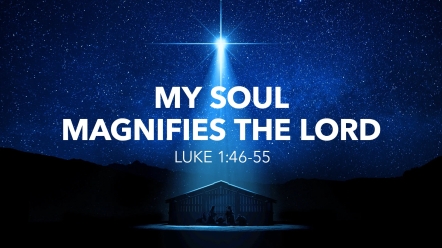
For me, it helps a little to look at the original Greek: ‘soul’ in Greek is ‘psyche’ – the word we get ‘psychology’ from – it’s a word that means the very foundation of one’s being: everything that’s in our minds and hearts. And the word ‘magnifies’ in Greek is megalunei – which literally translates ‘huge light’, like the sun. So put the two together and we have “my soul – beams a huge light on God!” “My soul is a spotlight on the Lord.”
That’s one way to understand it. There’s a second interpretation, very similar to it, but I’ll need to share a story to explain it. There was a Catholic nun awhile back who knew Mother Teresa personally and she tells this story about her. One day Mother Teresa was told about a family in Calcutta with several children, and the family had no food. So Mother Teresa prepared some rice and took it to the family. The mother of the family split the rice in half and disappeared for a moment. When she came back, Mother Teresa asked her, “where did you go?” and she answered, “To my neighbors next door who are Muslim. They also have no food.”
Mother Teresa repeated this story over and over, many times… and in doing so she magnified the kindness of this woman. This woman whose name we don’t know became an example of generosity and love for millions of people she never met, because Mother Teresa shared her story so many times. That’s also what it means to magnify.
In a similar way we magnify Jesus whenever we repeat his story – telling other people about his kindness and his goodness, and the prayers he has answered, and the lives he has saved. Mary says: “The Mighty One has done great things for me, holy is his name!” That’s magnification.
And then Mary gives a word of prophecy. She sings about a world that’s upside down (the world was as upside down back then as it is now) and how it will be turned right-side-up one day. God will scatter the proud; God will bring down the powerful; God will lift up the lowly; God will provide food for the hungry; God will fulfill hope, and bring justice and joy and peace to a broken and weary world.
It’s interesting to notice that Mary’s song does not stand alone in the Bible. There’s another song like it in I Samuel 2, where Hannah sings a similar song when God answers her prayer for a child – a song that talks about God lifting up the lowly and the poor, God feeding good food to the hungry, God filling those who are empty. The vision and the promise remain the same from the Old Testament straight through to the New Testament. These women sing about the things that matter to God: God’s relationship with the people, and God reaching out to provide for their needs, for the hungry, for the homeless, for the poor, for those who have nothing.
As for Mary herself, she sings that “all generations will call me blessed” – and this has certainly turned out to be true! Even for those of us who don’t keep statues of Mary around the house, we still honor her in our thoughts and prayers as the mother of our Lord.
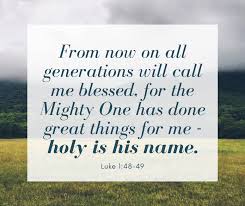
Scripture doesn’t tell us a whole lot about Mary; but tradition says that she was orphaned as a young girl, and the only relative of hers mentioned in the Bible is Elizabeth, who was a cousin. But we do know both Mary and Joseph were descendants of King David, and that Mary’s ancestry also included at least one Levite – which means that she inherited from both the line of Kings and the line of Priests – or as we would say today, both church and state. Jesus then becomes the leader and perfecter of both the kingdom and the faith.
We also know that Mary could have said ‘no’ to the angel’s message. She could have backed off in fear. She knew, that as a pregnant woman without a husband, her reputation would suffer. She knew that no-one would believe she was pregnant by the Holy Spirit. She knew that no-one believe the strange man who paid her a visit was an angel. She knew this pregnancy was going to complicate her life in a BIG way.
But she also knew and understood the honor of being the mother of the Messiah. And she loved God enough to share God’s vision for the world, and to say ‘yes’ to God with her whole heart.
We also, in our own way and in our own time, have the opportunity to say ‘yes’ to God. Like Mary, we know that saying ‘yes’ to God could complicate our lives a bit. But when we say ‘yes’ to God we are blessed. And when we light the candle of love against the shadows of hate we are blessed.
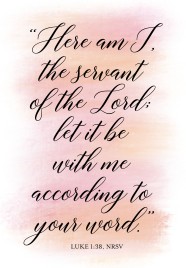
In this Advent week of love, we see a picture of what Love really is: God’s love for us, in becoming small enough to get inside Mary’s womb; and Mary’s love, being willing to risk everything to say ‘yes’ to God; and the love of so many others who have written down what happened, and copied it out by hand for generations, so that we can know about God’s love.
As we receive his love tonight, will we be faithful to share it with people who haven’t heard the story yet? In our world today, there are more people who have never heard the story of Jesus than there are people who have heard it. Will we follow in Mary’s footsteps and say ‘yes’ to all that God has in store for us?
If so, we can also say to God the words that Mary spoke: “Behold – the servants of the Lord. May it be to us as you have said.” AMEN.
~
